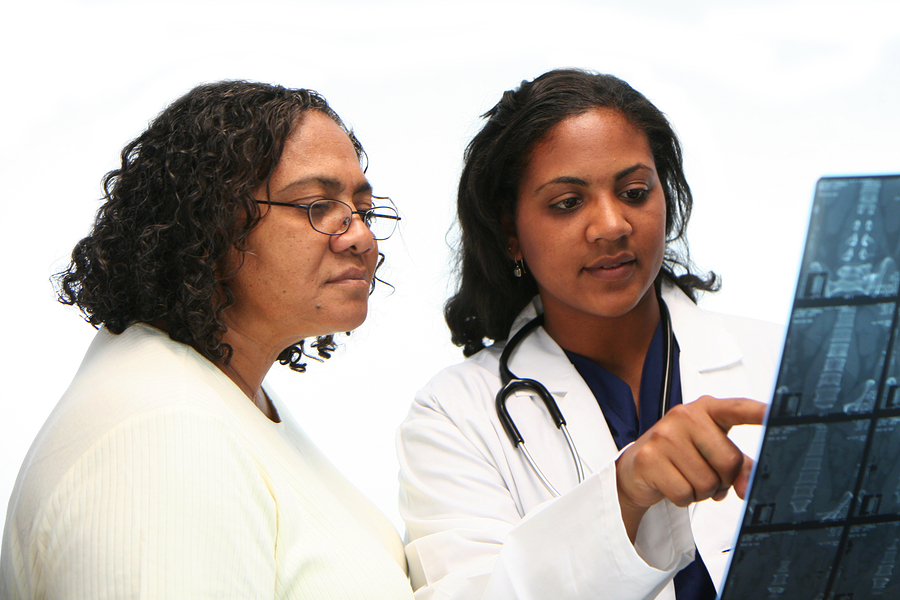Why Getting a Diagnosis Matters
/By Crystal Lindell, PNN Columnist
For me, finding out I had a genetic condition with no cure was, strangely, liberating.
When I walked out of the doctor’s office, I went to lunch at Chipotle with my mom to celebrate. We splurged for the guac.
No, I wasn’t ever going to get better — but at least I wasn’t crazy.
It took about five years of debilitating chronic pain in my ribs, two trips to the Mayo Clinic, appointments at three different university hospitals, and countless specialists before I was finally diagnosed with hypermobile Ehlers-Danlos Syndrome (hEDS) in March 2018.
And you know how it happened? It wasn’t some magical doctor who finally figured it out all out. No. It was my readers. A few of them emailed me suggesting I check into it, so I asked my doctor about it. He referred me to a pain specialist who diagnosed me within a month.
I’m not going to pretend that finding out I had hEDS was all just a pile of happy pills though. I went through an extremely rough month of depression and grief as I worked to grapple with everything that came with that life-long diagnosis. There’s no cure. My body will probably just get worse over the years. And having children would be extremely risky.
It was a loss, for sure, but it also was a gain in so many ways to finally know what I was fighting — and for others to know as well. It felt like it went from, “She’s making it all up and probably just wants pain meds,” to “She’s here legitimately,” in my medical chart. That alone was life changing.
And based on the Facebook and Reddit patient groups I follow, I’m not alone in any of this. Hundreds, if not thousands, of people seem to post about their search for a diagnosis, and the validation they feel once they’ve gotten it.
Knowing your enemy’s name makes it much easier to do battle.
And yet, doctors seem to be so far behind on this.
Here are some common myths I’ve heard both from my own doctors, and via patient stories.
Myth: A diagnosis won’t change how the symptoms are treated.
Fact: This simply isn’t true. For me, hEDS means I can react differently to medications and treatments. For example, I should avoid chiropractors and only see specially trained physical therapists, because if I don't, I could be seriously injured. Not to mention the fact that it also means I have additional risks that can be regularly tested for, such as issues with my heart. And the risks related to surgery also change. Be skeptical anytime someone tries to tell you that more information is a bad thing.
Myth: A diagnosis will increase insurance rates.
Fact: The U.S. requires insurance companies to cover pre-existing conditions now, so this simply isn’t true.
Myth: Seeking a diagnosis means you just want to spend your days blaming everything on your condition.
Fact: Trust me, nobody “wants” to blame everything on a genetic condition. But if a genetic condition is to blame, then it’s not crazy to connect the dots. A diagnosis also helps you see dots you didn’t even know where there.
Myth: A diagnosis doesn’t change anything.
Fact: A diagnosis does so much more than get noted in your medical history. It also can help you apply for programs like Social Security Disability and medical marijuana cards. And maybe even more importantly, it can help you explain yourself to friends, colleagues and family.
When you show up late for a meeting because “your ribs hurt,” people give you the side-eye and then leap into a diatribe about how their back hurts sometimes and they still manage to get there on time. But if you show up late and explain that you have a rare disease called EDS, they usually rush to offer sympathy and understanding.
So what do doctors mean when they try to tell you that a diagnosis doesn’t matter? They mean, it doesn’t matter to them. It’s similar to when they say a surgery is going to be easy, they mean it’s going to be easy for them.
But we aren’t living for them. We’re living for us. So keep fighting the good fight. Keep insisting that you get the right diagnosis. And know thy enemy.
Crystal Lindell is a journalist who lives in Illinois. She eats too much Taco Bell, drinks too much espresso, and spends too much time looking for the perfect pink lipstick. She has hypermobile Ehlers-Danlos syndrome.
The information in this column should not be considered as professional medical advice, diagnosis or treatment. It is for informational purposes only and represent the author’s opinions alone. It does not inherently express or reflect the views, opinions and/or positions of Pain News Network.





